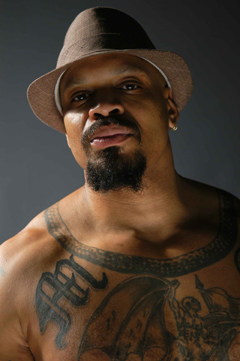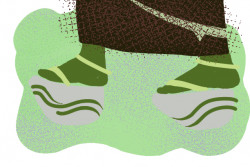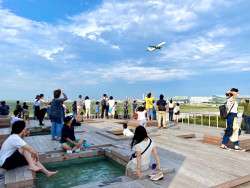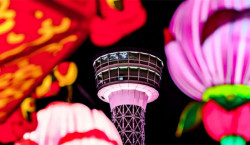
September 10, 2009
Kansai Music Conference & Japan Music Week
Two new foreign-led powwows try to shake up the industry
By Metropolis
Originally published on metropolis.co.jp on September 2009

Mic Crenshaw
The Japanese music industry has long looked on in envy at freewheeling festivals like America’s South by Southwest. Such events are essential meeting places for bands hoping to score contracts and for record companies scouting new talent, and they possess unmatched international cachet.
In Japan, with its highly centralized media industry, attempts at music conferences have failed to take hold, unable to find a meaningful role. But with the country’s music scene becoming increasingly internationalized, two new foreign-led events are hoping not only to provide musicians with the know-how to enter the Japanese market, but also to help Japanese find a toehold in their own music industry.
“I’m a drummer of 25 years [experience], and with the way live music is done in Japan, I would rather not play at all because there is little reward: small crowds, little or no money and usually a set of just 30 minutes,” explains Kansai Music Conference organizer Duane Levi. “After seeing evidence that pretty much any type of productive music scene in Japan is rapidly fading, I created an event that I think will be able to breathe new life into the scene.”
Over two days in September, KMC will bring together artists from over 13 countries at a convention hall in Osaka to participate in workshops with grand themes like “Building International Bridges With Music,” as well as more prosaic ones such as “Why Are There Only 10 People At Our Show?” The lineup includes US hip-hop artist and educator Mic Crenshaw (above right) and R&B singer Tiff Barbour.
As with Japan Music Week later in the fall, participants choose from a range of tickets that grant varying levels of access to conference events and evening showcase concerts. Levi, who used to run a mobile music business in North Carolina before moving to Japan in 2004 and launching a tour management company, has great hopes.

Tiff Barbour
“It’s amazing how artists with such talent are practicing and performing with almost no attention from the music industry,” he says. “It’s almost impossible for independent musicians in Japan to move up to the next level without help from a major company. KMC is my way of effecting change—a change to a better and more rewarding music scene in Japan.”
Coincidentally, while Levi was thinking up the Kansai Music Conference, a longtime music professional in Tokyo was busy conjuring the Japan Music Week, which takes place the second week of November. Jon Lynch is the founder of Juice, the widely distributed free music magazine, and had long harbored dreams of a South by Southwest-style event in Shibuya.
“Shibuya is a kind of regional pop culture capital for Asia, and hundreds of artists, DJs and other creators will perform at over 100 JMW events there during the week,” Lynch says. “We aim to provide a showcase for emerging artists, and to stimulate the local and international music industry to find strong new directions in the face of its many challenges.”
Some of the obstacles Lynch cites that will be taken up in JMW seminars include not only the well-documented freefall in sales of recorded music and digital piracy, but also declining interest in Western music and the problems that regional Japanese music artists face in breaking into a Tokyo-centric entertainment industry.
But for a foreign community that has recently produced authentic Japanese pop stars like enka singer Jero—and Japanese producers hoping to sight the next crossover sensation—it may be the foreign nature of KMC and JMW that offers the most promise.
One of the key events at Japan Music Week will be “Shake Forward!” which takes place on November 13 at Shibuya’s O-East. Hosted by Mixed Roots Japan, the show has drawn considerable attention for highlighting artists who either have mixed parentage or are non-Japanese residents of Japan. Performers include British expat Keith Gordon from Okinawa electronica duo Ryukyu Underground, who will be joined by Okinawan eisa drummers and members of hip-hop group Ainu Rebels.
“We feel that being part of JMW will be a great opportunity for the artists to express their art and also engage in social dialogue in the even more dynamic setting of a club,” says Mixed Roots’ Edward Sumoto. “And not just any club, but in Shibuya, a cultural hub of its own kind.”
“The resident foreigners’ music scene has always seemed too separated from the mainstream music scene here,” notes Lynch. “But at Japan Music Week, many of the core organizers and artists helping to create the genre and country events are non-Japanese. So hopefully this festival will show the great contribution that foreign residents are able to make.”
Buyers of wristbands will be able to participate in workshops and enter dozens of associated events in the live house nexuses of Shibuya, Shinjuku, Roppongi and Shimokitazawa. JMW kicks off with a big networking party at O-East on November 9, immediately followed by “Best of Japan,” a concert that aims to showcase Japanese artists that most deserve success overseas.







